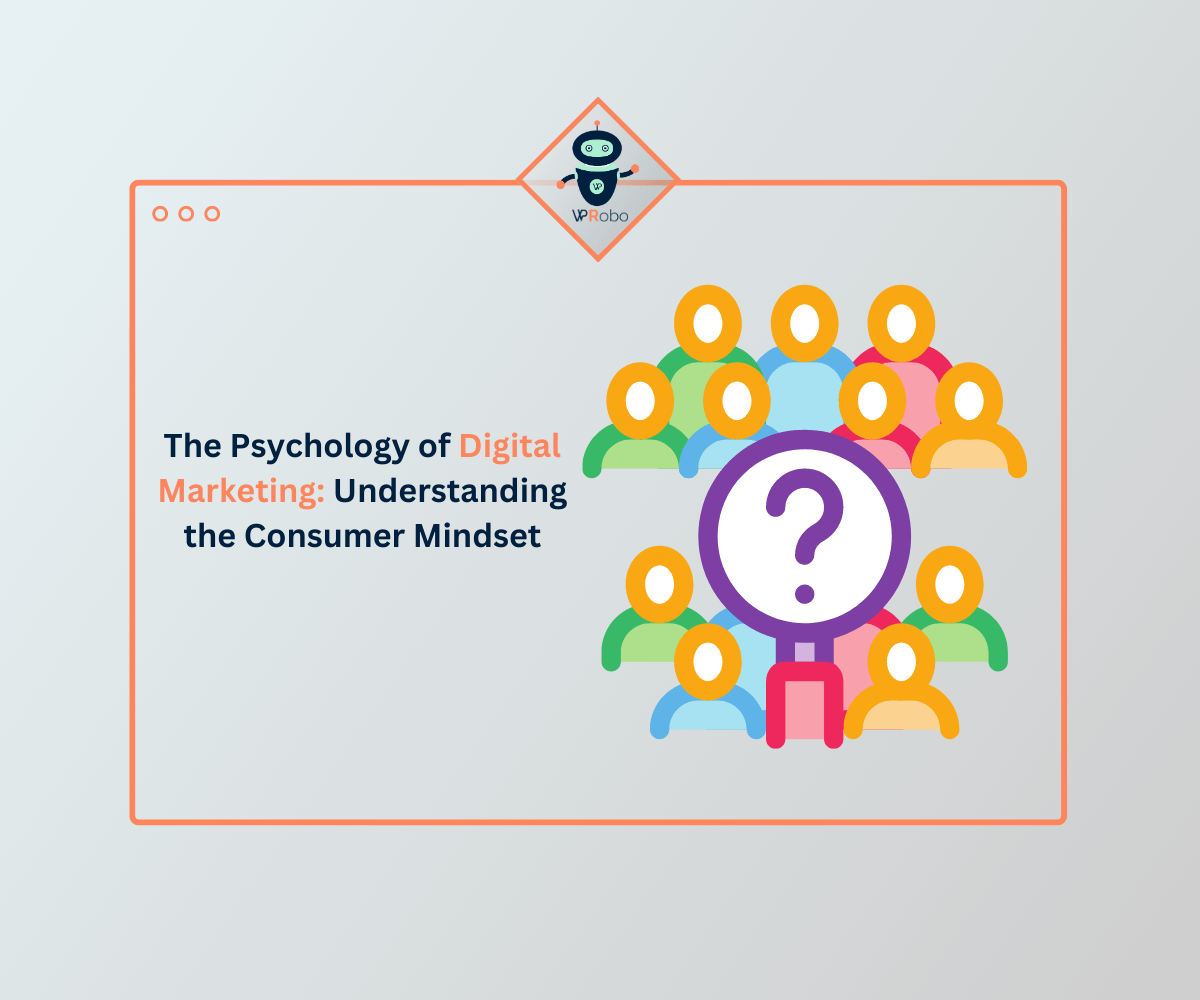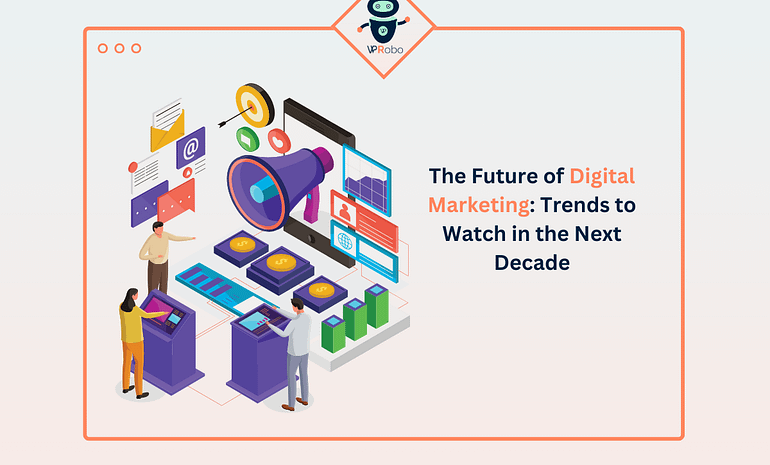The Psychology of Digital Marketing: Understanding the Consumer Mindset
In today’s fast-paced digital landscape, businesses constantly seek effective strategies to engage and persuade their target audience. The emergence of digital marketing has revolutionized the way brands interact with consumers. However, to truly succeed in this realm, it is crucial to understand the consumer mindset and tap into the psychology behind their decision-making processes.

By leveraging psychological principles, marketers can create compelling campaigns, build brand loyalty, and drive conversions. This article explores the psychology of digital marketing, shedding light on key factors that influence consumer behavior and providing actionable insights for marketers.
The Power of Emotional Appeal:
Emotions play a significant role in consumer decision-making. Digital marketers who understand how to evoke specific emotions can influence consumer behavior. Positive emotions like happiness, excitement, and nostalgia can create a sense of connection between the brand and the consumer, leading to increased engagement and brand loyalty.
Conversely, negative emotions such as fear, frustration, or sadness can be leveraged to highlight the problems a product or service solves, positioning the brand as a solution provider.
Cognitive Biases and Persuasion Techniques:
Consumers are subject to cognitive biases and mental shortcuts that influence their decision-making processes. Understanding these biases allows marketers to design campaigns that resonate with consumers on a subconscious level.
Examples of cognitive biases include social proof, scarcity, anchoring, and the bandwagon effect. Marketers can nudge consumers towards making favorable purchasing decisions by integrating persuasion techniques based on these biases, such as testimonials, limited-time offers, pricing strategies, and influencer marketing.
Personalization and Relevance:
In today’s digital age, consumers are constantly bombarded with marketing messages. To cut through the noise and capture their attention, personalization has become a powerful strategy for marketers. Personalization involves tailoring experiences, content, and recommendations to align with each individual’s unique preferences, behaviors, and needs.
By harnessing the wealth of data available, marketers can create highly targeted campaigns that resonate with consumers on a personal level, leading to increased engagement, brand loyalty, and ultimately, conversions.
Data-driven insights serve as the foundation for effective personalization strategies. By analyzing consumer demographics, purchase history, browsing behavior, and engagement patterns, marketers can gain valuable insights into what motivates and influences their target audience.
This information allows them to segment their audience into smaller, more specific groups, known as microsegments or buyer personas. Personalization creates a sense of exclusivity and relevance, strengthening the bond between the consumer and the brand.

The Influence of Social Media:
Social media platforms have transformed the way consumers interact with brands, making it imperative for marketers to understand the psychological impact of social media on consumer behavior. Social media provides a platform for individuals to express their identity, seek validation, and connect with others.
By leveraging user-generated content, fostering user engagement, and employing social proof, marketers can tap into the inherent psychological needs of consumers, increasing brand awareness and influencing purchasing decisions.
The Power of Storytelling:
Humans are hardwired to respond to stories. Digital marketers who incorporate storytelling into their strategies can captivate their audience, create an emotional connection, and make their brand more memorable.
Stories engage multiple brain regions, enhancing information retention and making the brand narrative more persuasive. Marketers can effectively influence consumer perceptions and behaviors by crafting compelling narratives that align with the brand’s values and resonate with the target audience.
Building Trust and Credibility:
In the digital realm, where consumers are bombarded with information and choices, trust and credibility play a vital role in decision-making. Consumers are more likely to engage with brands they perceive as trustworthy.
Marketers can build trust through various means, including social proof, testimonials, expert endorsements, and transparent communication. Trust establishes a strong foundation for long-term customer relationships and repeats business.
Social Influence and Peer Recommendations:
Consumers often seek validation from others before making a purchasing decision. Social influence plays a crucial role in shaping consumer behavior. Marketers can leverage this by incorporating social proof, such as customer reviews, ratings, and testimonials, into their digital marketing campaigns. Positive feedback and endorsements from peers create a sense of trust and credibility, influencing potential customers to follow suit.
The Scarcity Principle:
The scarcity principle capitalizes on consumers’ fear of missing out (FOMO) and desires to possess exclusive or limited items. By emphasizing scarcity, marketers tap into consumers’ instinctual fear of losing out on an opportunity. When individuals perceive that a product or offer is scarce or time-limited, it triggers a psychological response that compels them to take immediate action.
The fear of missing out on a coveted item or a limited-time discount pushes consumers to make a purchase decision swiftly, increasing the likelihood of conversions and driving sales. Limited stock is a common scarcity tactic employed by marketers. By displaying the remaining quantity of a product or highlighting that it’s available for a limited time only, marketers create a sense of urgency and scarcity.
This scarcity element adds perceived value to the product or offer, as consumers believe that the item is in high demand and may run out soon. As a result, consumers are more inclined to make a purchase to secure the item before it becomes unavailable.
Anchoring and Price Perception:
When making judgments or decisions, people have the propensity to base their conclusions mainly on the first piece of information they are presented with. In digital marketing, marketers can strategically present a higher-priced option or compare prices to anchor consumers’ perception of value.
By offering multiple pricing tiers or highlighting a discounted price, marketers can influence consumers to perceive the value they receive as greater, ultimately driving conversions.
When it comes to understanding the consumer mindset and driving impactful digital marketing strategies, WPRobo is your ultimate partner. We are not just a digital marketing agency; we are a catalyst for your business growth and online success.
At WPRobo, we possess a deep understanding of consumer psychology and leverage it to deliver exceptional digital marketing services. Our team of experts excels in crafting tailored strategies that captivate your target audience, increase brand visibility, and generate tangible results. We know that behind every click and conversion lies the intricate workings of the consumer mind, and we harness this knowledge to propel your business forward.
If you’re ready to take your business to new heights, WPRobo is here to make it happen. Contact us today, and let our expertise and unwavering commitment to your success solve all your digital marketing challenges. Together, we will unlock the full potential of your business and set you on a path toward sustainable growth.
Conclusion:
Understanding the psychology of the consumer mindset is essential for successful digital marketing strategies. By delving into the psychological factors that drive consumer behavior, marketers can create compelling campaigns that resonate with their target audience, foster brand loyalty, and drive conversions. The power of emotional appeal, cognitive biases, personalization, social media influence, storytelling, and building trust are key elements that shape consumer decision-making processes in the digital realm.
Moreover, the scarcity principle and the importance of personalization and relevance play significant roles in capturing consumer attention and driving engagement. By incorporating these psychological insights into their digital marketing strategies, businesses can forge strong connections with consumers, optimize their campaigns, and ultimately achieve sustainable growth in an increasingly competitive landscape. To succeed in the digital marketing realm, understanding the psychology of the consumer mindset is crucial for creating impactful and effective campaigns that resonate with the target audience.



